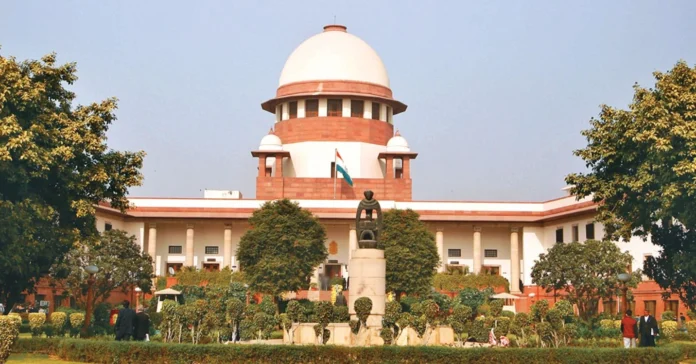The Supreme Court Collegium has recommended the names of 36 judicial officers and advocates for elevation as judges to eight High Courts across the country, marking a decisive step towards revamping of judicial appointment system.
As per a resolution, the Apex Court Collegium has recommended the appointment of 10 judges each in the High Courts of Madhya Pradesh and Punjab & Haryana, followed by four each to the High Courts of Telangana and Gauhati, three in the Delhi High Court, two each at the High Courts of Rajasthan and Patna, and one in the Andhra Pradesh High Court.
As on July 1, 2025, there are 371 vacancies against the sanctioned strength of 1122 in 25 High Courts across the country.
The move followed an unprecedented two-day marathon of personal interviews conducted by Chief Justice of India Bhushan R Gavai, Justice Surya Kant and Justice Vikram Nath with 54 judicial officers and members of the Bar, on July 1 and 2.
The Collegium appointed Shail Jain, Madhu Jain and Vinod Kumar as judges of the Delhi High Court.
It cleared the name of 10 judicial officers as judges of the Punjab and Haryana High Court. These include Virinder Aggarwal, Mandeep Pannu, Parmod Goyal, Shalini Singh Nagpal, Amarinder Singh Grewal, Subhas Mehla, Surya Partap Singh, Rupinderjit Chahal, Aradhana Sawhney and Yashvir Singh Rathor.
Four lawyers were elevated as judges of the Telangana High Court. These are Advocate Gouse Meera Mohiuddin, Advocate Chalapathi Rao Suddala, Advocate Vakiti Ramakrishna Reddy and Advocate Gadi Praveen Kumar.
Besides, a judicial officer and an advocate were recommended for appointment as judges of the Rajasthan High Court.
The Collegium recommended the appointment of Advocate Tuhin Kumar Gedela as a judge of the Andhra Pradesh High Court.
It further proposed the elevation of Justice Biswadeep Bhattacharjee, additional judge, as a permanent judge of the Meghalaya High Court after converting the existing additional judge’s post into the post of a permanent judge.
The names of two judicial officers – Pranjal Das and Sanjeev Kumar Sharma, along with Advocates Anjan Moni Kalita and Rajesh Mazumdar, were proposed for appointment as judges of the Gauhati High Court.
The Collegium proposed the elevation of Advocate Pushpendra Yadav, Advocate Anand Singh Bahrawat, Advocate Ajay Kumar Nirankari, Advocate Jai Kumar Pillai and Advocate Himanshu Joshi as judges of the Madhya Pradesh High Court.
The names of five judicial officers were also recommended for appointment as judges of the Madhya Pradesh High Court. These include Rajesh Kumar Gupta, Alok Awasthi, Ratnesh Chandra Singh Bisen, Bhagwati Prasad Sharma and Pradeep Mittal.
The Collegium further proposed the elevation of Advocates Ajit Kumar and Praveen Kumar as judges of the Patna High Court.
The Supreme Court Collegium recently tightened its judge selection process and increased the scrutiny of candidates seeking High Court judgeship, following the controversy surrounding Justice Yashwant Varma over the alleged recovery of unaccounted cash from his residence.
The three Collegium judges were understood to have had long interactions with the candidates, each lasting for about half an hour.
Sources said the Collegium members were interviewing the candidates thoroughly on their resumes and areas of work.
The virtual or physical interactions were being conducted with a view to assess the capability and the calibre of candidates proposed to be appointed as judges of High Courts. The process has been taken up during the Court’s summer vacation, when the judges engaged in administrative work, including tasks related to judicial appointments.
The current Collegium has made the judge selection process more grueling to assess the candidates better. Earlier while appointing judges to the High Court, the Collegium used to rely on inputs by the relevant state government, Supreme Court judges who hail from the concerned High Court and files/inputs by the Intelligence Bureau (IB).
Following various controversies involving High Court judges, the Collegium headed by former CJI Sanjiv Khanna started insisting on face-to-face meetings. The current Collegium has decided to continue with face-to-face interviews, while also having longer interactions with potential judges.
The Apex Court Collegium has been in disagreement with the Central government over the delay in clearing its recommendations. This has also led to candidates withdrawing their consent for being appointed as judges.
Supreme Court judge Justice Dipankar Datta recently remarked that the external forces preventing the Collegium’s recommendations from being acted upon should be dealt with sternly.


